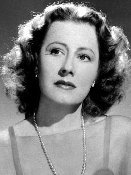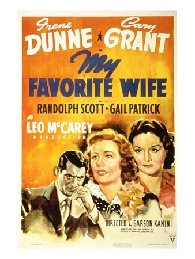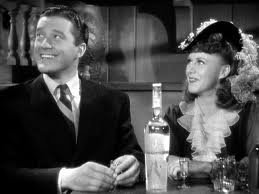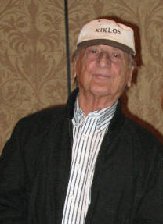Career
Silvers began entertaining at the age of 11, when he would sing in theaters when the film projector broke (a common occurrence in those days), to the point where he was allowed to keep attending the same movie theater free of charge, to sing through any future breakdowns. By age 13, he was working as a singer in the Gus Edwards Revue. Subsequently, he worked in vaudeville and as a burlesque comic.
Silvers next worked in short films for the Vitaphone studio, such as Ups and Downs (1937), and on Broadway, where he made his début in the short-lived show Yokel Boy in 1939. Critics raved about Silvers, who was hailed as the bright spot in the mediocre play. The Broadway revue High Kickers (1941) was based on his concept.
The Phil Silvers Show
Silvers became a household name in 1955 when he starred as Sergeant Ernest G. Bilko in You'll Never Get Rich, later retitled The Phil Silvers Show. The military comedy became a television hit, with the opportunistic Bilko fast-talking his way through one obstacle after another. In 1958, CBS switched the show to be telecast on Friday nights and moved the setting to Camp Fremont in California. A year later, the show was off the schedule. In the 1963–1964 television season, he appeared as Harry Grafton, a factory foreman interested in get-rich-quick schemes, much like the previous Bilko character, in CBS's 30-episode The New Phil Silvers Show, with co-stars Stafford Repp, Herbie Faye, Buddy Lester, Elena Verdugo as his sister, Audrey, and her children, played by Ronnie Dapo and Sandy Descher.
Personal life
Phil Silvers was married twice, to Jo-Carroll Dennison and to Evelyn Patrick. Both of his marriages ended in divorce. He had five daughters — Candace, Cathy, Laury, Nancey, and Tracey — all by his second wife, Evelyn Patrick, who later married British musician Terry Dene.
Like his alter-ego Ernie Bilko, Silvers was a compulsive gambler, and also suffered from chronic depression. He suffered a nervous breakdown in 1962 while performing in Spain. While staying in Reno, Nevada, in the 1950s, he would often gamble all night. On one occasion, at the tiny Cal-Neva Lodge in nearby Lake Tahoe, Nevada, Silvers spent an entire night playing craps until he lost all his money and then went through $1,000 in credit. A taxi was called to return him to Reno. It was one "of the worst nights of my life", Silvers told the driver, adding, "Don't wait for any lights and don't wait for any tip . . . I left it at the Cal-Neva!"
His memoir is titled This Laugh Is On Me.
Illness and death
Silvers suffered a stroke during the run of A Funny Thing Happened on the Way to the Forum in August 1972. He was left with slurred speech. Despite his poor health, he continued working, playing Harry Starman in the 1974 "Horror in the Heights" episode of Kolchak: The Night Stalker starring Darren McGavin. His guest appearances continued into the early 1980s, including co-starring in The Chicken Chronicles (1977), an appearance on Fantasy Island as an old comic trying to reunite with his old partner, and on Happy Days as the father of Jenny Piccolo (played by his real daughter Cathy).[26] Silvers played the cab driver Hoppy in Neil Simon's send-up of hard-boiled detective films, The Cheap Detective (1978), which starred Peter Falk. In his cab, Silvers can be heard (three words) and seen turning his head towards the camera and breaking into a smile (1/4 fps) at the film's ending immediately prior to Falk entering "Hoppy's" cab. His final appearance was in an episode of CHiPs (entitled "Hot Date") in 1983.
On November 1, 1985, Silvers died in his sleep in Century City, California. He was interred at Mount Sinai Memorial Park Cemetery in Los Angeles.
If you want to read a lot more, go here: https://en.wikipedia.org/wiki/Phil_Silvers
- 1 (3 to 3-1/2 pound chicken), cut into 8 pieces
- 4 baking potatoes, peeled and quartered
- 1 large onion, chopped
- 3 cups water
- 1 (28-ounce) can whole tomatoes, drained and quartered
- 1 (15-ounce) can cream-style corn
- 1/2 cup long grain rice
- 1 1/2 teaspoons salt
- 1 teaspoon black pepper
- 1/2 cup heavy cream
- 2 cups fresh spinach
- In a soup pot, combine all ingredients except heavy cream and spinach and bring to a boil over high heat..
- Reduce heat to medium-low and simmer 45 to 50 minutes, or until chicken is no longer pink in the center, stirring occasionally.
- Stir in cream and spinach and cook 2 to 3 minutes, or until heated through.
Across the nation each year on December 20th, National Sangria Day recognizes a wine and fresh fruit combination that brings a fresh celebration to the table.
Sangria is a beverage made with wine and sweetened with fresh fruit and fruit juices. Other ingredients can include herbs, spices, carbonation, and liquor. The combinations are endless, giving sangria a place in the cocktail rotation year-round. Refreshing and light during hot summer months, bright and sparkling during the winter ones, this fruity punch is quite versatile.
Sangria made with white wine is called Sangria Blanca.
Use fresh fruit in season for the best flavors. Once mixed, sangria should be chilled and the fruits allowed to marinate for a few hours or overnight. When making sangria, if you use 100% juice, you’ll gain the maximum benefits, too. Eating the fruit versus all the sweet cakes and pies over the holidays will be healthier. Get the benefits of red wine, but drink in moderation and sangria will be worth all the celebration.
HOW TO OBSERVE
Include sangria with your holiday celebrations. Add flavors that compliment your meals and bring sparkle to your evenings. Hostesses may offer more than one sangria to please the many palates of our guests, too. With so many recipes, it’s easy to please. Don’t hesitate to sample a few ahead of time. We offer a few different recipes to try. Share your favorites this holiday season. And then be sure to find more for the rest of next year, too!









